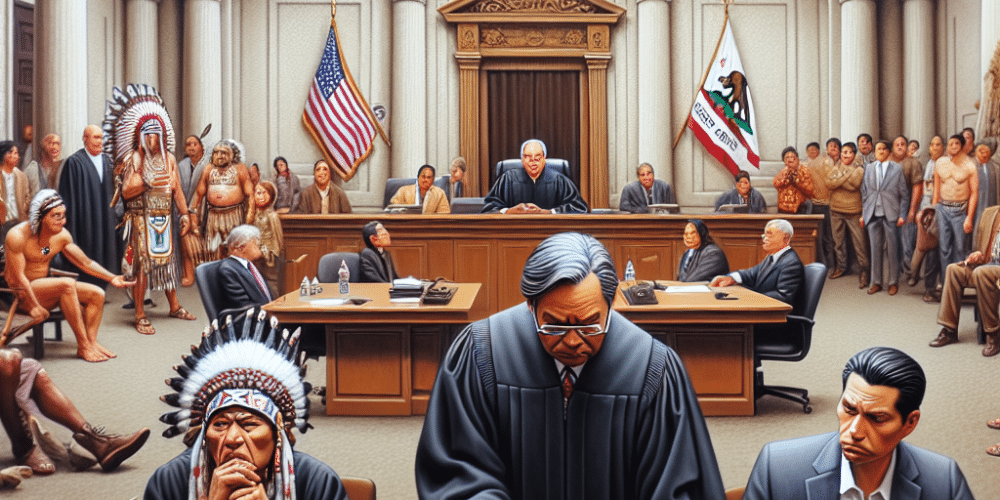In a recent decision, Sacramento County Superior Court Judge Lauri Damrell dismissed a lawsuit filed by tribal governments in California, marking yet another defeat in their ongoing legal battle against commercial cardrooms. These tribes argued that they exclusively held the rights to offer Las Vegas-style games, such as blackjack and pai gow poker, under Senate Bill 549. They sought to determine whether cardrooms were violating state law by offering these games.
The pivotal aspect of this case was the interplay between state and federal law. Judge Damrell concluded that the Indian Gaming Regulatory Act (IGRA), a federal law governing tribal gaming, takes precedence over any state laws that would allow tribes to challenge cardrooms in state court. In her written opinion, she acknowledged the complexity and significance of the issue but emphasized that federal jurisdiction constrained her ability to rule otherwise.
The cardroom industry viewed this ruling as a significant victory. The California Gaming Association, representing cardrooms, argued that the decision helps sustain numerous jobs and supports local economies, especially in cities reliant on cardroom-generated tax revenue. Kyle Kirkland, president of the association, expressed that the verdict allows cardrooms to continue contributing to communities while adhering to transparency and compliance standards.
On the other side, tribal leaders expressed deep frustration with the outcome. James Siva, chairman of the California Nations Indian Gaming Association, criticized the court for sidestepping the lawsuit’s core issue. He argued that lawmakers passed SB 549 to afford tribes a long-overdue chance to challenge what they perceive as illegal gambling activities. Siva contended that the ruling contradicts legislative intent and vowed to appeal the decision.
The dispute is part of a broader, ongoing conflict over gambling rights in California. In January, tribes launched the lawsuit claiming that numerous cardrooms across the state were offering “banked” card games, impinging on tribal casino profits that are vital for funding essential community services. Instead of seeking financial damages or attorney fees under SB 549, the tribes sought a legal determination on the legality of these games.
Supporters of the cardrooms maintain that their operations comply with state regulations and have undergone frequent scrutiny by the attorney general’s office. Cities like San Jose, which benefit from tens of millions of dollars annually in cardroom taxes, warned that a victory for the tribes could jeopardize funding for critical public safety and local programs. Thus, the court’s decision brings closure to a costly and protracted policy dispute.
Both factions have invested heavily in lobbying efforts, with cardrooms waging aggressive campaigns against legislators who supported the tribal bill. Despite their courtroom defeat, the political debate over gambling rights in California persists. A new legislative measure, Assembly Bill 831, which seeks to limit online gaming platforms, now awaits Governor Gavin Newsom’s decision.
For those advocating for tribal gaming rights, the battle is far from over. They argue that the state’s current regulatory framework unfairly favors commercial cardrooms, effectively diminishing the economic benefits tribal casinos can provide to their communities. They emphasize that tribal gaming revenues play a crucial role in supporting social programs, education, and healthcare for Native American communities.
Conversely, the cardroom industry contends that their businesses are operating within legal bounds and are integral to the economic stability of many California municipalities. They argue that cardrooms have adapted over time, offering a variety of games in line with state laws, and that the ongoing litigation only serves to divert resources away from constructive community engagement.
The gambling industry in California is a significant economic sector, drawing in billions of dollars annually. Tribal casinos and cardrooms both contribute to this figure, though they cater to different segments of the market. The question of who can offer what type of gaming remains contentious, with each side presenting compelling arguments for their case.
Those in favor of maintaining the status quo argue that cardrooms provide a unique form of entertainment that complements tribal casino offerings without directly competing with them. They suggest that the state should focus on ensuring fair competition and robust regulation rather than altering existing gaming licenses.
Tribal representatives warn that without a change in the regulatory environment, tribes will continue to face economic challenges that hinder their ability to invest in community welfare. They assert that a more equitable distribution of gaming rights would lead to a more prosperous and harmonious industry landscape in California.
As the legal and political battles continue, stakeholders on both sides are keenly aware of the stakes involved. The outcome of these disputes will likely shape the future of gaming in California for years to come, impacting everything from job creation and tax revenue to the preservation of cultural heritage and community development.
Governor Newsom’s impending decision on Assembly Bill 831 could further influence the dynamics of this complex issue. The bill’s focus on online gaming platforms may introduce new elements into the ongoing debate, adding another layer of complexity to an already intricate policy landscape. Both tribes and cardrooms will be watching closely, ready to adapt to whatever changes may come.

David Garato is a luminary in gaming journalism, renowned for peeling back the curtain on the gaming world with his witty and insightful commentary. A decade into weaving stories from the pixelated edges of indie games to the expansive universes of AAA titles, David’s work is a thrilling blend of analysis and adventure. When not writing, he’s live-streaming, sharing his gaming exploits with an engaged and growing audience. David doesn’t just write about games; he lives them, making him a trusted guide in the gaming community.
















